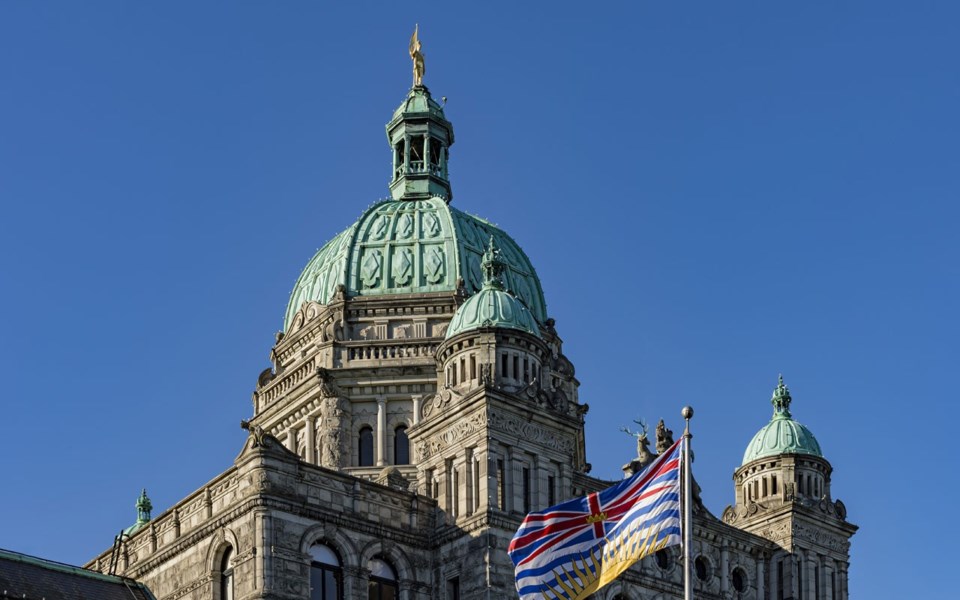It's Christmas in October. This is the week that B.C. voters start receiving mail-in referendums on electoral reform, and a rare chance to make history.
This is the third—and probably final—time that British Columbians will have the opportunity to ditch our dated First Past the Post (FPTP) electoral system in favour of proportional representation—a form of government where party representation more closely reflects the way people actually vote.
Never again will a party with 40 per cent of the ballots hold 100 per cent of the power. That is, if this referendum passes, and right now that's far from a sure thing...
The 2005 referendum on electoral reform failed because it only received 58-per-cent support when it needed 60 per cent—a weird requirement insisted on by the same people who also think 40 per cent is good enough to win a majority.
The second referendum in 2009 failed for a few reasons, including a successful campaign by opponents to paint the proposed STV system as confusing and bad for local governance. It was polling at 65-per-cent support a few weeks out but in the end, the supporter turnout was weak.
The current electoral reform referendum put forward by the NDP-Green Party coalition is a two-part question asking whether we want to switch to a system of proportional representation (PR) and how we rank the three PR options.
More on these options will be included in the package, and there's a good overview at elections.bc.ca/referendum. Read it. And don't fall for the predictable scare tactics being used by FPTP's well-connected, well-funded defenders—Liberal Party supporters who would love 16 more years of single-party rule in B.C.
Proportional representation could give extremist parties the deciding vote!—Unlikely ... Under PR, a political party would need at least five per cent of the popular vote to even get a seat. Extremist fringe parties don't get nearly that much support.
And provinces and parties already have no trouble voting for political extremists under FPTP, like the Coalition Avenir in Quebec and Doug Ford's Conservatives in Ontario. What exactly are we clinging to?
It's also worth pointing out that three Green Party MLAs—left-wing extremists to some—currently hold the balance of power in B.C. through the FPTP system. Ironically, the same Liberal Party that opposes electoral reform would probably be in power today since winning the popular vote.
Proportional representation is just too gosh darn complicated!—That's right, there are actual pundits out there arguing that people are too stupid to cast a ballot under a PR system—and expecting that to win you over.
It's not rocket surgery. Some 87 countries currently use some form of PR. If they can figure it out then so can we.
PR governments are dysfunctional—just look at Italy! To that I would say look at Germany ... Switzerland ... Sweden ... Norway. A lot of successful, high-functioning countries with similar values to Canada are already using PR. Italy's wacky government is more a reflection of the culture in that country (which I love, but damn) than any choice of electoral system.
By the same measure, there is no shortage of dysfunctional countries using FPTP—including the U.S. where Trump finished second in votes but still won the election.
We will end up with more instability, minority governments, and coalitions!
Under FPTP, almost half of our recent federal elections have ended up with minority governments, so the stability argument is void.
Plus, I'd argue that our current provincial coalition is working pretty well—and the polls back that up.
And how is it less democratic for a coalition of parties that represents a majority of voters to rule compared to a party that got less than 40-per-cent support? Aren't we better served when politicians negotiate with each other to get things done instead of packing everything into omnibus bills, shutting down debates, and making decisions behind closed doors?
We will lose local representation! This is a legitimate concern, maybe the only one, but studies show that other countries prefer PR even if there is a trade-off like larger ridings. The truth is that we really don't know how local representation will be affected, if at all, and politicians tend to vote along party lines anyway.
The beauty of this referendum is there is an escape pod if people decide they don't like it—another referendum after two election cycles to find out whether people want to keep PR or switch back to FPTP. We literally get to kick the tires on a new system of government before deciding whether to buy.
There's no downside that I can see—other than for the private, wealthy interests that have enjoyed too much backroom influence in the past.
It's time for a change.




